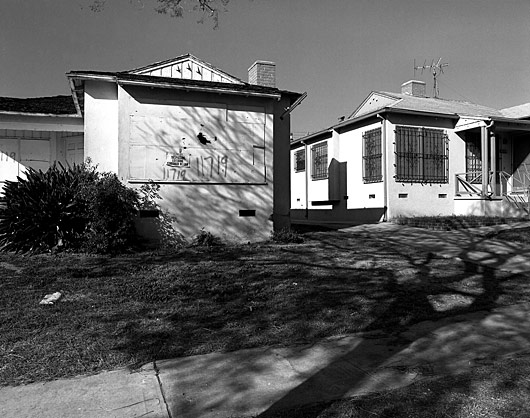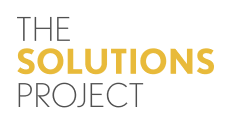Once upon a time… We all know what follows this phrase. It’s a jumping off point from which we hear a story. But how do you start off a story that’s complex, with a laundry list of characters and countless plot twists and turns? Dr. Pop (aka organizer, planner, and professor Gilda Haas), along with SCOPE’s organizing and training team are partnering with community-based researchers and media makers to tackle a story such as this. It’s the story of devolution in Los Angeles—a story spanning over a century, with nearly 4 million storytellers.
The only problem is most people don’t know what devolution is. Dr. Pop, who specializes in developing popular education curricula, describes it as a process in which responsibility “devolved” from the federal government to state and local jurisdictions. The goal was to “prevent the federal government from spending federal funds on the programs that were created during the New Deal and Great Society, the programs that benefited the poor, the working class, and the middle class, and that helped level the playing field between corporations and consumers.”
 So, why does the story of devolution in Los Angeles matter now? And why should we care? According to Dr. Pop, in order to understand how we got where we are now—facing budget deficits and a shrinking middle class—we need to go back in history to understand tax and fiscal policy in our country, as well as the debates that have shaped attitudes about the role and influence of the public sector on our economy. Popular education is the perfect vehicle to help us break down the political jargon and build a critical consciousness about the socio-economic and political conditions in which we live.
So, why does the story of devolution in Los Angeles matter now? And why should we care? According to Dr. Pop, in order to understand how we got where we are now—facing budget deficits and a shrinking middle class—we need to go back in history to understand tax and fiscal policy in our country, as well as the debates that have shaped attitudes about the role and influence of the public sector on our economy. Popular education is the perfect vehicle to help us break down the political jargon and build a critical consciousness about the socio-economic and political conditions in which we live.
For the past 20 years, SCOPE has fought for and won new job creation models to build a just economy for low-income, immigrant, black and brown communities in Los Angeles. In the wake of the great recession, SCOPE is tackling broader tax and fiscal policies that prevent these programs from being truly effective and sustainable. SCOPE partners with organizations, academics like Dr. Pop, and national experts to connect the dots—not only between our campaign work and the broader political context, but also between our individual and collective experiences within this complex story.
Out of this collaboration, SCOPE hosted an interactive popular education-style training and storytelling project at our recent Summer Leadership Academy. SCOPE members, local residents, allies, and organizers had the opportunity to participate in a narrative experience that began with: “Once upon a time, there was a beautiful city in southern California called Los Angeles that was an industrial powerhouse…” What followed was a ride in a time machine that helped participants identify how their own stories are intertwined with the story of LA.
 Once participants understood the story of devolution in Los Angeles, they realized it’s not such an unfamiliar concept after all. The story of Los Angeles is tied to our own stories and can be elicited simply by remembering what LA was like once upon a time —whether your family came from Mississippi to South LA to work in the booming steel industry, or you’re struggling to stay in the rapidly changing Boyle Heights neighborhood after generations of living there. The stories that came out of the academy touched on issues such as housing, family values, corporate greed, jobs, and poverty—many weaving in and out of the story of Los Angeles that Dr. Pop presented.
Once participants understood the story of devolution in Los Angeles, they realized it’s not such an unfamiliar concept after all. The story of Los Angeles is tied to our own stories and can be elicited simply by remembering what LA was like once upon a time —whether your family came from Mississippi to South LA to work in the booming steel industry, or you’re struggling to stay in the rapidly changing Boyle Heights neighborhood after generations of living there. The stories that came out of the academy touched on issues such as housing, family values, corporate greed, jobs, and poverty—many weaving in and out of the story of Los Angeles that Dr. Pop presented.
This popular education project is one of many ongoing opportunities for members and residents to connect to SCOPE’s campaign to win good career path jobs and advocate for policy to ensure corporations pay their fair share of taxes. SCOPE, along with our storytelling partners, will keep working with members to sharpen their storytelling skills, and develop as leaders that help shift the attitudes of decision makers and future generations of Angelenos. Alone, each of these stories is representative of one in 4 million LA residents, but one by one our stories have the power to transform how we envision the future story of Los Angeles.












